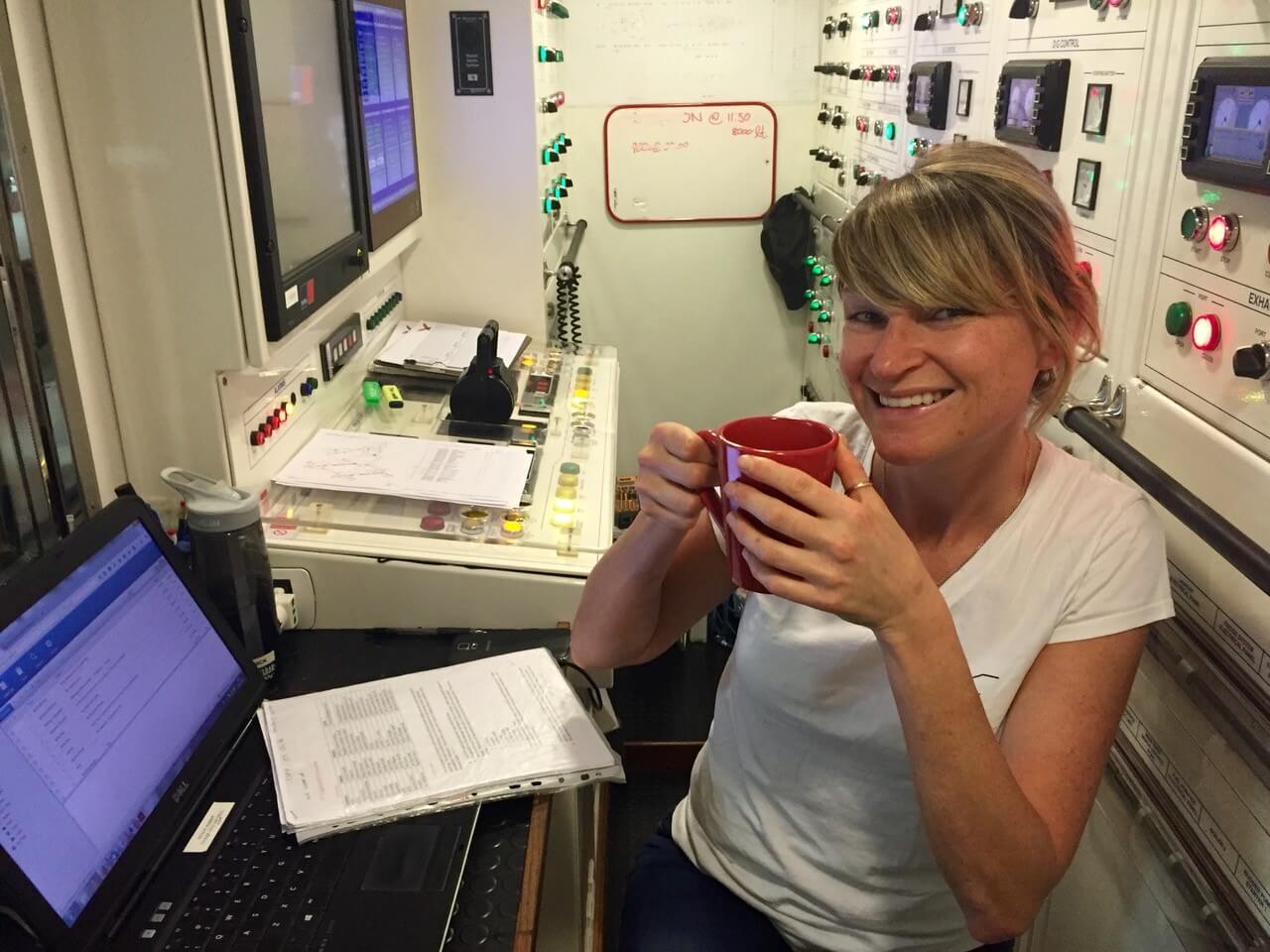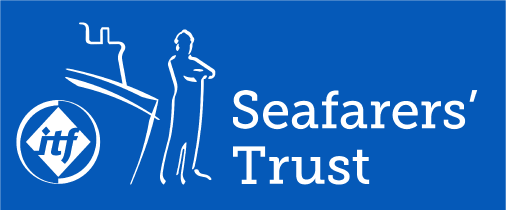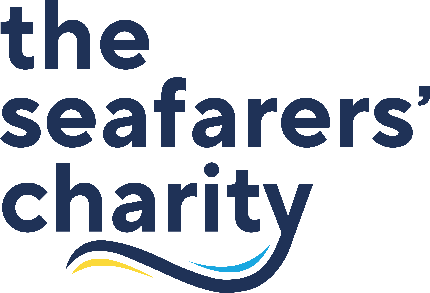Read more
Get support
If you have been affected by any of the issues raised in this story, you can speak to someone by contacting our free, confidential, 24-hour helpline:
Get support
Working on board a yacht can be exhilarating – fast-paced, high-energy, and filled with opportunities to see amazing places and form tight-knit bonds with your crew. However, at some point, all crew face challenges that test them emotionally, mentally or physically.

Emma Ross
Emma Ross spent 15+ years in the superyacht industry, starting out as a stewardess and evolving into a chef. She co-founded SEAS THE MIND after seeing and experiencing a vacuum around mental health awareness and unchallenged bullying and harassment. She shares some of her personal experiences of working in yachting here, and explains why ISWAN’s YachtCrewHelp is such an important resource for crew in similar situations.
Emma describes the first half of her career in yachting as the ultimate adventure – travelling the world with her partner and friends, doing regattas and charters, and travelling from island to island while working really hard in between. ‘I left yachting for a few years and the golden handcuffs called me back, as they do for so many of us. But I returned as a single female, and the experience I had was radically different to the experience I had as half of a couple.
‘I got to see a very different side of yachting. Even as an older female in the industry, in my 30s with a good understanding of my boundaries, I still felt incredibly vulnerable. It’s sad that I even have to say this, but I had a lot of the ‘usual experiences’ – unwanted romantic gestures, deckhands coming into my cabin in the middle of the night…’ Although these situations were ‘always diffused and never anything too problematic’, Emma says she realised that she was now experiencing what many other women do in the yachting industry.
Emma describes women as being on ‘a much shorter career treadmill than men’ working in the yachting industry, where once you start approaching your 40s, you are not expected to still be there. This means a lack of potential mentors who can guide and support younger women, whether on career choices or personal boundaries. ‘One of the amazing things about having multiple generations, which we often get for men on boats, but not often for women, is that you get to have someone with more expertise and experience than you. And when things go wrong, professionally or personally, someone who’s older can give you that understanding. The amount of times I had younger women coming to me as an elder and saying: “This thing happened and I’m not sure how I feel about it”, or “This thing happened to me last night and made me feel uncomfortable”, because I’ve just been around the block more.’
If a young female crew member does not have someone more experienced on board to turn to for guidance, Emma emphasises the value of being able to call or send a message to YachtCrewHelp and ask to speak to a woman who can offer guidance on what is appropriate behaviour, or what options there are if you want to take action, or simply offer a non-judgemental listening ear.
Like many women who experience harassment, Emma also found herself questioning whether she had somehow contributed to the situation – she describes having ‘a lot of grey areas and a lot of “Was that my fault? Should I have locked my cabin? Was I too drunk?”’. Sometimes it can be helpful to hear from someone else that the responsibility always lies with the person who caused the harm.
‘If I’d had the ability to call and speak to another woman who was off the boat, who was non-judgmental, who would keep my story confidential, I would have saved many, many years of being upset, questioning myself, questioning my behaviour and questioning my actions.’ She says YachtCrewHelp is ‘an incredible literal lifeline to a lot of people that might not have the tribe to answer those questions.’
Life on board a yacht can be shaped just as much by the people you work with as the places you travel to. ‘I’ve been pretty fortunate that for the majority of my career I’ve worked with some unbelievably brilliant humans – captains, chief officers, chefs…’, says Emma. Onboard culture and relationships can make all the difference between a positive experience with great memories and something far more challenging.
At one point in her career, Emma found herself on a boat which she had worked on for many years previously. ‘I considered it my home away from home. It was somewhere I felt safe. And it’s remarkable how one person can change the whole dynamic of a boat.’ The crew were in an isolated part of the world which Emma describes as somewhere everyone wants to go, but ‘rather than it being this incredible, beautiful adventure, populated with hard work and guest trips, it ended up being a horrible experience.’
Emma describes how one crew member on board created a ‘very clear clique’ that was driven by alcohol and partying. ‘If you weren’t going out and drinking and getting drunk every single night, you would find yourself quite isolated and alone.’ Crew members who wanted to do other things like go for hikes were rejected or talked down, and they were excluded to the point of being ignored when they walked into the crew mess. There would be ‘hi’s or ‘hello’s only to the people that were ‘cool’.
‘That created a really kind of weird dynamic on a boat that I had a lot of love for and split the crew pretty much down the middle. It was a really weird experience for me, going from someone who was really upbeat, outgoing and social to finding myself spending days and days on my own.’
Emma found that internalising the stress and rejection she felt started to have a negative impact on her body. ‘If the brain is not dealing with what’s going on, sometimes I’ve noticed that the body starts shouting out. And how that manifested for me is for the first time in my life, I started experiencing panic attacks. If you don’t know what a panic attack is, it’s a kind of rushing onset of intense apprehension, heart pain, chest pain, rapid breathing… You feel very out of control. And if you’ve never had one before, it feels like a heart attack. So there I am, doing my mise en place in the galley, and suddenly I’m overwhelmed by the fear of dying. I’ve lost control of my heart, my breathing, my hands are kind of numb and shaking. I can’t even kind of finish what I’m doing in the galley.’
The nature of yachting, where your workplace is your home, can add to that feeling of being trapped and isolated. ‘At the end of a normal working day in another industry, you get to go home, shut your laptop, close your door, and get home to your tribe – your partner, your friends. In yachting, if you’re not getting to close the cabin door or walk home and remind yourself of your base values and beliefs that have been infused in you by your friends and family, I found that can be eroded pretty quickly, no matter how strong you are or how much work you’ve done.’
Despite the challenges she was facing, Emma found ways to help her cope. ‘Luckily, I had a partner; I had friends and family that would support me through it. I would call people. I’d go to the upper deck and walk around because I needed open air. I needed space. I’d grab a couple of ice cubes and I’d rub them on my vagus nerve or the back of my neck and just concentrate on the feeling of ice dripping down my neck or on my skin. If I hadn’t had my partners and my friends, I would have been far worse off than I already was.’
Emma explains that family and friends are not always within reach. ‘I was so far away because we were so isolated in a completely different time zone. My friends and family in South Africa and England were going to sleep, which meant for a few hours of the day I was alone and vulnerable. There was no one I could call, or I didn’t feel I could call them at two or three AM.
‘If I’d been able to call YachtCrewHelp and have someone who was trained, who was compassionate and caring, who could talk me through a panic attack and calm me down and stay on the phone… Panic attacks last around 8 to 10 minutes, but in the time they’re very scary. And then after about 8 to 10 minutes you start to kind of regulate. You start to feel normal again. And all you need sometimes is just a voice at the end of the phone line to remind you that you’re going to be OK. This is not going to last forever. And this doesn’t define you.’
Emma says her experiences were one of the reasons she wanted to start SEAS THE MIND, to train seafarers to become Mental Health First Aiders so they can understand mental health issues, spot the signs and symptoms, and know how to signpost themselves and others towards help.
‘Your brain tells you you’re alone. But the truth is you’re never alone. Sometimes speaking to someone who’s not on the boat and doesn’t have the same kind of restrictions as you is the first lifeline into the water.’
Whether you have a problem or question or just need someone to talk to, YachtCrewHelp is here to listen and offer support. Our helpline is free, confidential, multilingual, and available 24 hours a day, 365 days a year. Contact us any time, day or night: www.iswan.org.uk/yachtcrewhelp.
If you have been affected by any of the issues raised in this story, you can speak to someone by contacting our free, confidential, 24-hour helpline:
Get support

